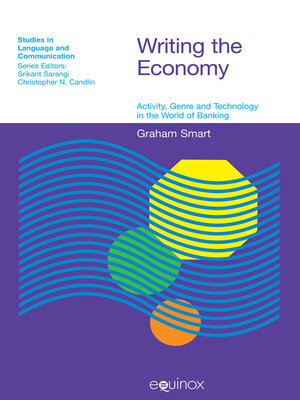Writing the Economy
ebook ∣ Activity, Genre and Technology in the World of Banking · Studies in Communication in Organisations and Professions
By Graham Smart

Sign up to save your library
With an OverDrive account, you can save your favorite libraries for at-a-glance information about availability. Find out more about OverDrive accounts.
Find this title in Libby, the library reading app by OverDrive.



Search for a digital library with this title
Title found at these libraries:
| Library Name | Distance |
|---|---|
| Loading... |
In recent years the economic policies of major financial institutions such as the European Union Central Bank, the U.S. Federal Reserve and other countries' central banks, and the International Monetary Fund have received growing media attention, reflecting increased public awareness of the impact of these institutions on the global economy and, more immediately, on the material conditions of our everyday lives. Writing the Economy: Activity, Genre and Technology in the World of Banking takes readers into one such site, the Bank of Canada, that country's central bank and monetary-policy authority. Drawing on qualitative data gathered over two decades (1984-2005) and employing theories of activity, genre, narrative, and situated learning, the book provides an ethnographic account of the role of technology-mediated discourse in the Bank's knowledge-building, policy-making, and public communication.
The first part of the book describes how the Bank's economists employ a set of written and oral discourse genres in combination with computer-run economic models to create specialized knowledge about the Canadian economy that is applied by the organization's senior decision-makers in directing national monetary policy. The book then examines the economists' use of another set of technology-mediated discourse genres to orchestrate the Bank's external communications with government, the media, the business sector, financial markets, labour, and academia. The book also explores the way in which the economists' discourse practices facilitate individual and organizational learning and includes extended commentaries on the author's use of the methodology of interpretive ethnography.
In a foreword, Charles Bazerman describes the book's contribution to our understanding of organizational discourse and knowledge-making, situating this contribution in the study of economic rhetoric and the social formation of economy.







